
June 16, 2020 – There is a list of things you should have with you when traveling to Croatia in the corona era. A printout of the IATA guidelines is one of them.
There is a lot of uncertainty surrounding travel in the post-corona world, and while many of us worry if it is safe to travel at all, others are wondering what rules and regulations ring true across the board, as we are met with new information each day. In an effort to hopefully curb any confusion, we’re telling you why travelers should print out the IATA guidelines if they’re flying to Croatia.
International Air Transport Association (IATA) announced the latest COVID-19 entry regulations for each country (with a free online interactive world map to boot), which have apparently proved crucial for those of you flying to Croatia.
But why, you might ask?
Because many airlines and travel agencies are seemingly unaware of the restrictions – and since the IATA guidelines for Croatia begin with ‘Passengers are not allowed to enter‘, we think we know why.
IATA’s guidelines for Croatia, published June 16, 2020, are as follows:
1. Passengers are not allowed to enter.
This does not apply to:
-nationals of Croatia and their family members.
-nationals of Austria, Czechia, Estonia, Germany, Hungary, Latvia, Lithuania, Poland, Slovakia and Slovenia.
-nationals of Belgium, Bulgaria, Cyprus, Denmark, Finland, France, Greece, Iceland, Ireland (Rep.), Italy, Liechtenstein, Luxembourg, Malta, Netherlands, Norway, Portugal, Romania, Spain, Sweden and Switzerland when:
– returning via Croatia to their country of residence; or
– traveling on business with an invitation letter; or
– traveling as tourists with accommodation reservation confirmation.
-passengers with a British passport and their family members, when:
– returning via Croatia to their country of residence; or
– traveling on business with an invitation letter; or
– traveling as tourists with accommodation reservation confirmation.
-passengers with a long-term residence permit issued by Croatia.
-passengers with a long term residence permit or a long term “D” visa issued by Austria, Belgium, Bulgaria, Croatia, Cyprus, Czechia, Denmark, Estonia, Finland, France, Germany, Greece, Hungary, Iceland, Ireland (Rep.), Italy, Latvia, Liechtenstein, Lithuania, Luxembourg, Malta, Netherlands, Norway, Poland, Portugal, Romania, Slovakia, Slovenia, Spain, Sweden, Switzerland or United Kingdom when:
– returning via Croatia to their country of residence; or
– traveling on business with an invitation letter; or
– traveling as tourists with accommodation reservation confirmation.
-passengers entering Croatia to transit by land to a third country. They must prove that they can enter the destination country.
2. Passports and national ID cards issued to nationals of Croatia which expired on 11 March 2020 or later are considered valid.
The rules from June 10, 2020, however, have changed from June 2, which initially stated that travel was allowed for business, no matter the nationality.
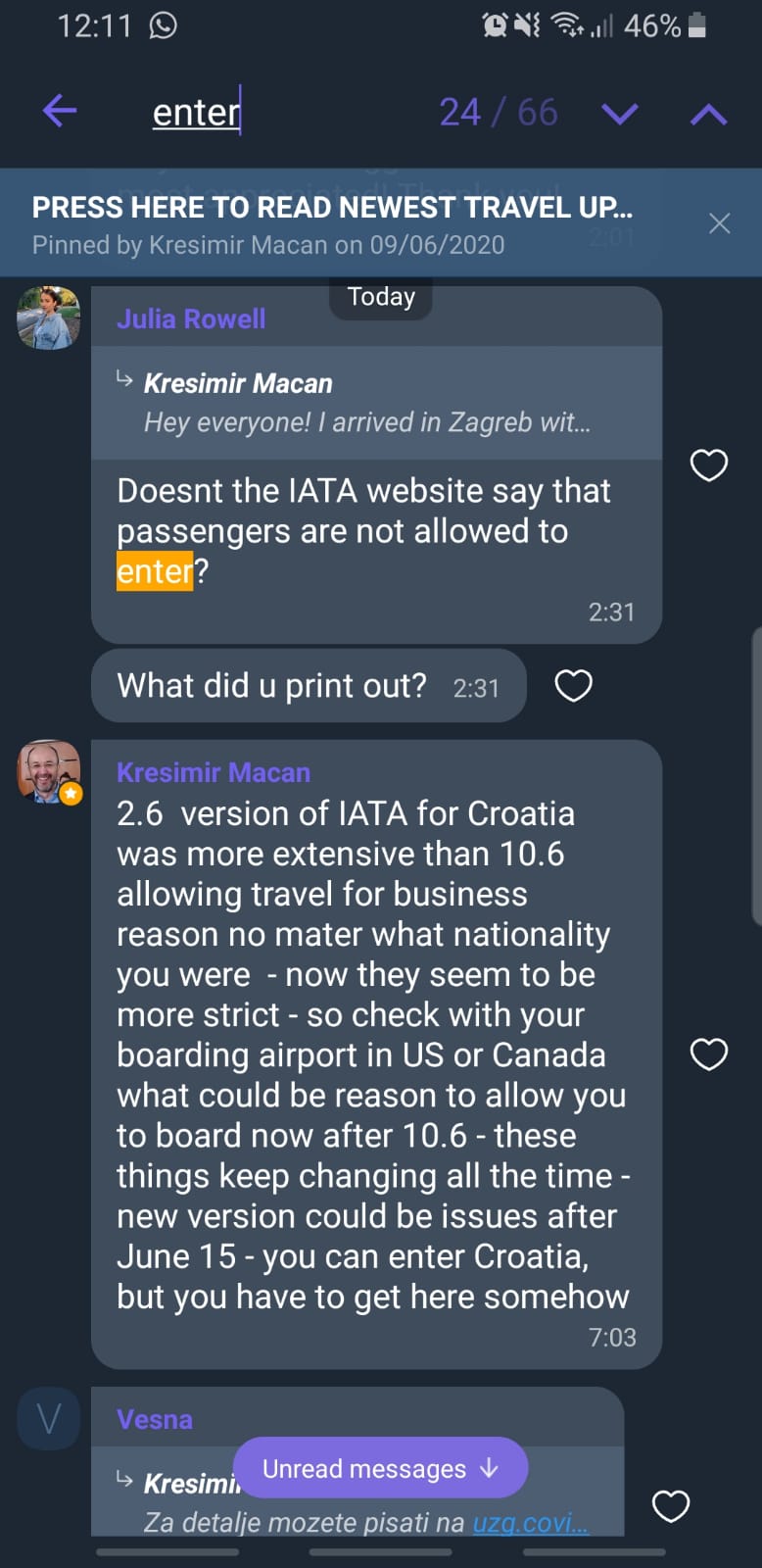
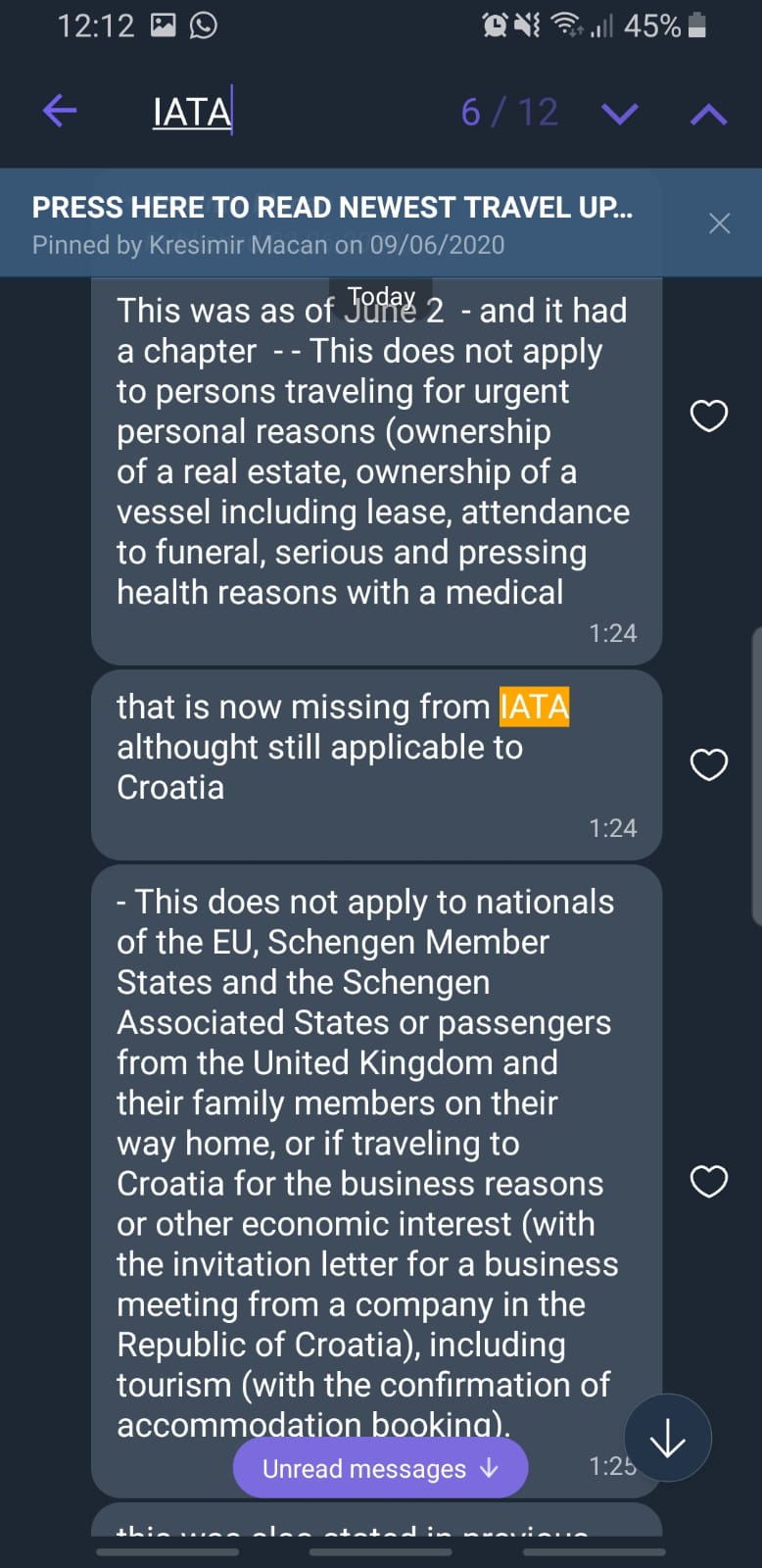
As mentioned above, many airlines are unaware of the guidelines, and some passengers have been refused entry. Some advice, if that happens:
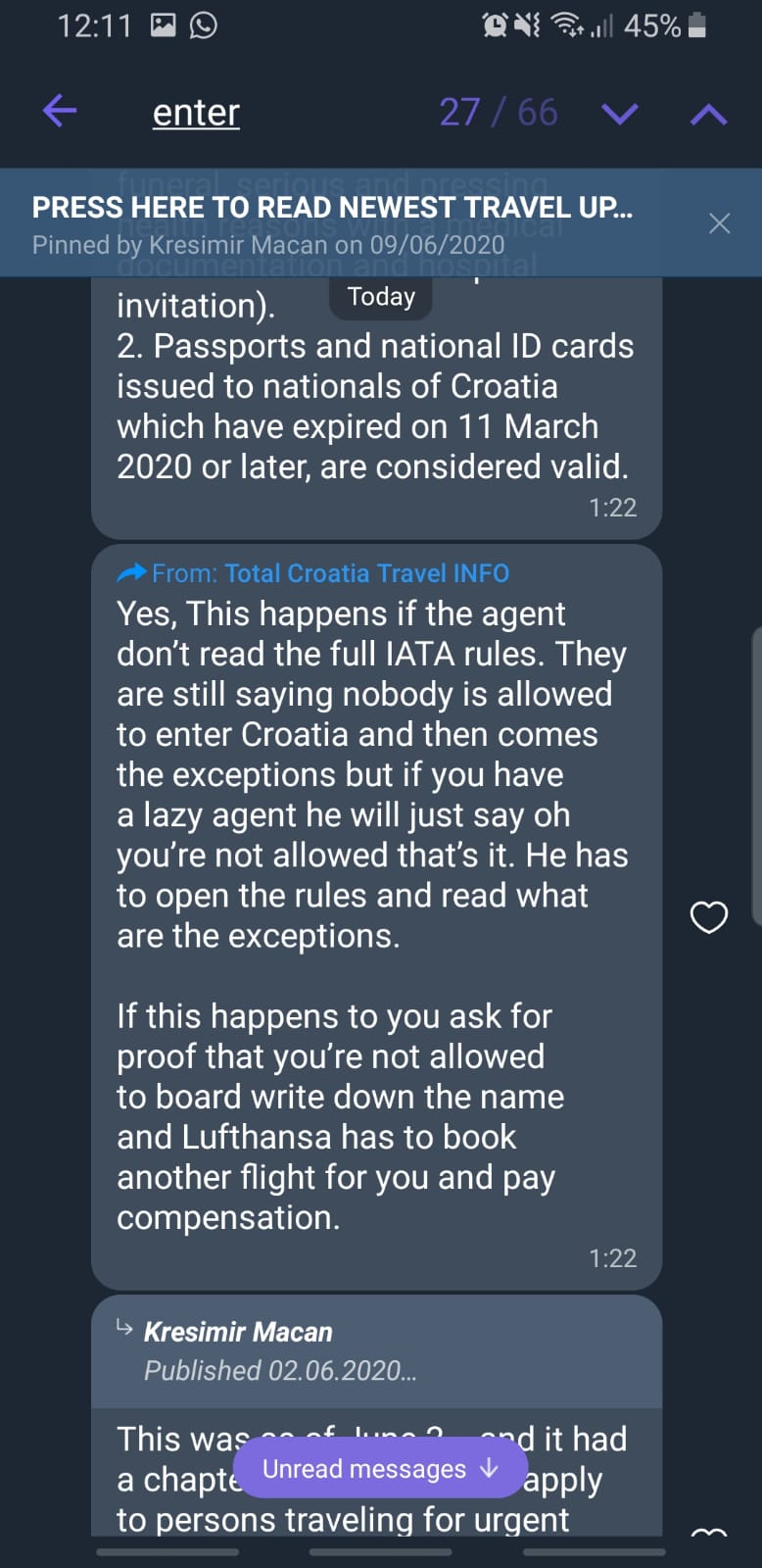
Below, a passenger experience that prevailed, with the following documents in tow:
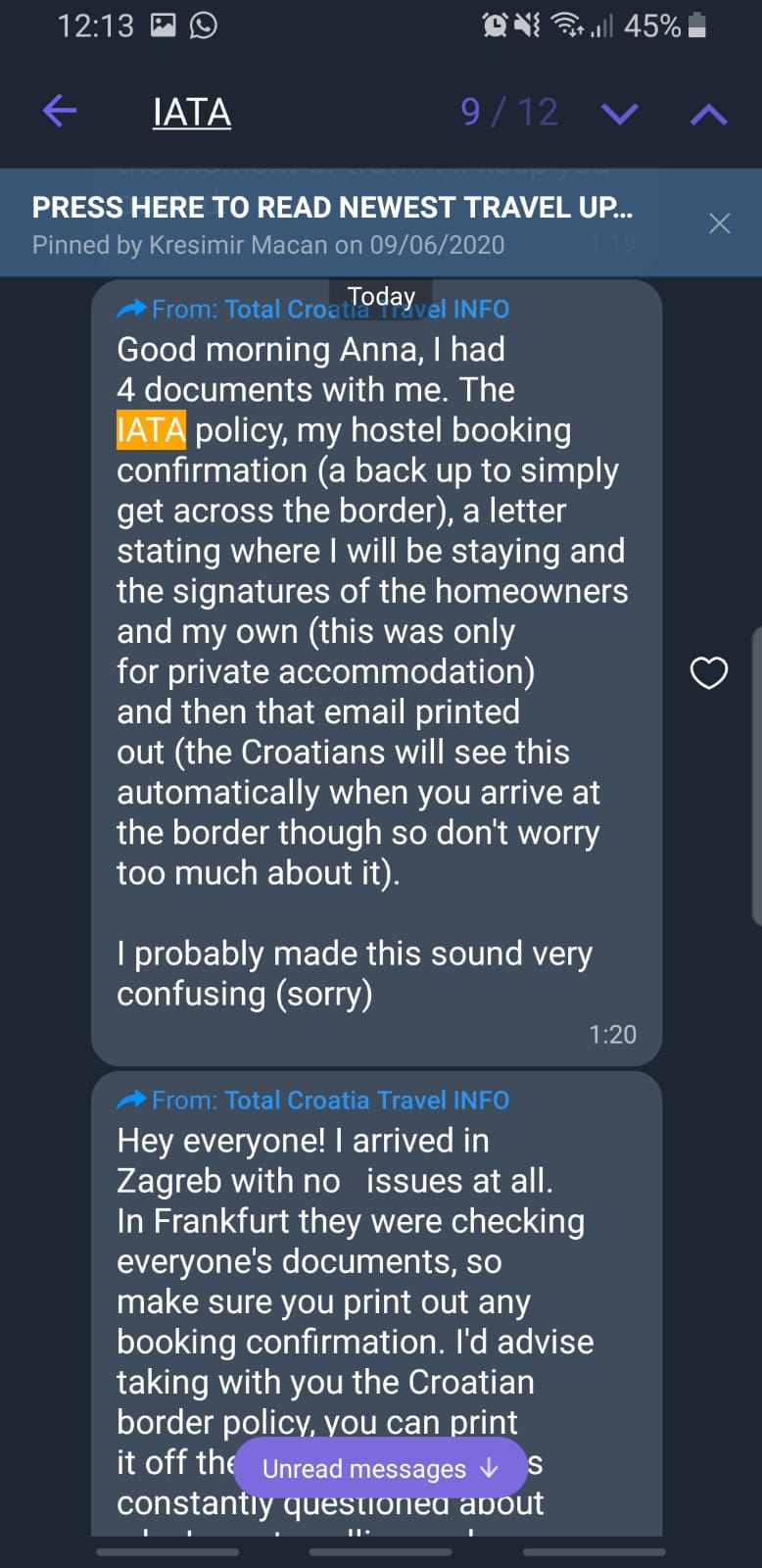
Remember, if you’re traveling to Croatia, not only is it important to print out the IATA guidelines for Croatia, but make sure you have filled out the Enter Croatia form, have booking confirmation, and an email confirmation from MUP, for good measure (uzg.covid@mup.hr).
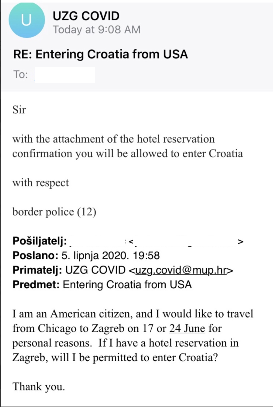
For the latest travel info, bookmark our main travel info article, which is updated daily.
Read the Croatian Travel Update in your language – now available in 24 languages
Join the Total Croatia Travel INFO Viber community.









